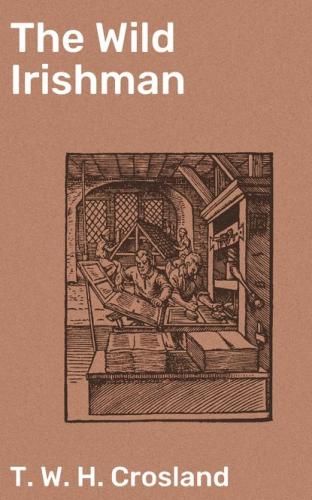As we have said, the Irish question as a portent and terror to England is disappearing, if indeed it has not already disappeared. For all that, the fact remains that Ireland in the main is a distressful country. Thackeray’s Snooks gives it as his opinion that “of all the wum countwith that I ever wead of, hang me if Ireland ithn’t the wummetht.” “Wum,” gay and irrepressible epithet though it may be, is really and deep down not the epithet; whereas “distressful” is. There are people in the world who are born to misfortune, whose lives are touched with melancholy from beginning to end, and who cannot be brought to rejoice even by Act of Parliament. Ireland’s woes may be said to be largely temperamental and still more largely “misfortunate.” Her very position in the geographical scheme of things is strikingly lonesome and unhappy. Practically she is the last outpost of Europe, and a little one at that. With sheer Atlantic on one side of her, and sixty miles of sea between herself and England, it is impossible for her to get rid of a certain feeling of isolation which is not good for the spirits. The soft rain that is always over her may heighten the green of her meadows, but it keeps her damp and watery and preternaturally boggy. She has no harbors of the kind that are essential to fishermen, and though some of her ports may be admirable, there is little in the country that calls for the use of them. Thus physically handicapped, Ireland has necessarily produced a people who are in all respects a people to themselves. The religious faculty in them has been highly developed, the commercial faculty might seem to have been left out of their composition. By nature they are a simple, cheerful, unambitious, warm-hearted race, and they have suffered accordingly. Sir Francis Drake, or some instrument of his, planted the potato upon them. James I. planted the Scotch on them. George III. gave them a Lord Lieutenant and a Secretary. The potato, the Scotch, and Dublin Castle have been the three bitter curses which have brought this people to the ghastliest social and political passes. All three are ineradicable, but they may be mitigated. This is what Ireland wants.
CHAPTER II
THE SHILLELAGH
As the Yorkshireman is said to sport on his escutcheon a flea, a fly, and a flitch of bacon, so in the popular imagination an Irishman of the real old sort is usually conceived in association with a pig, a pipe, and a shillelagh. Rightly considered, one supposes that the shillelagh is a survival of the pre-historic club. In any case, it is a weapon of some character, chiefly notable for its handiness in the matter of skull cracking, and believed to be the pride and joy of every Paddy worth his salt. The shillelagh has undoubtedly earned for the Irish a reputation for roguish and heroic delight in battle. “Tread on the tail of my coat, now,” is supposed to be forever on Irish lips, with immediate results in the article of broken heads. And when we English wish the use of a metaphor for rows and scuffles, free fights and so forth, we have a habit of remarking that the affair amounted to “a regular Donnybrook”—Donnybrook, of course, being a sort of feast of shillelaghs to which all Ireland was wont annually to repair. Of the number of shillelaghs in Ireland at the present moment the blue books give no account. It seems to me doubtful whether there are a thousand in the whole country. One may travel through Ireland for weeks on end, and come across nothing of the sort. The only shillelagh I had the pleasure of seeing in the course of a recent, lengthy Irish journey was in the hands of a very ill-clad youth who looked more like a Lancashire cotton operative out of work than a broth of a boy. And the shillelagh in question was of polished black wood without knots, and the top of it had a nickel silver knob, like a beau’s cane. The weapon, indeed, reminded one of nothing so much as a Salmon & Gluckstein, silver-headed, ebony walking-stick, cut short. The owner proudly assured me that it was his bit of a blackthorn, and the finest for miles around. It seems more than probable that the shillelagh-notion of an Irishman had at one time something in it. While Donnybrook Fair has been suppressed, there can be no getting away from the fact that there once was a Donnybrook, and a pretty warm one to boot. Says the poet:
“Who has e’er had the luck to see Donnybrook Fair?
An Irishman, all in his glory, is there,
With his sprig of shillelagh and shamrock so green!
His clothes spic and span new, without e’er a speck,
A neat Barcelona tied round his neat neck;
He goes to a tent, and he spends half a crown,
He meets with a friend, and for love knocks him down
With his sprig of shillelagh and shamrock so green!”
“And for love knocks him down” is quite in the “rale ould” spirit. A spectator[1] of the Donnybrook held on the 29th August 1828, described it as follows: “I rode out again to-day for the first time, to see the fair at Donnybrook, near Dublin, which is a kind of popular festival. Nothing, indeed, can be more national! The poverty, the dirt, and the wild tumult were as great as the glee and merriment with which the cheapest pleasures were enjoyed. I saw things eaten and drunk with delight,
